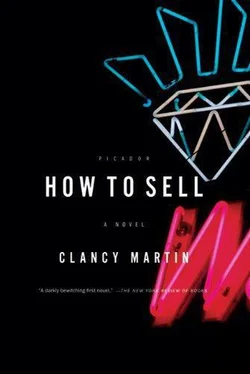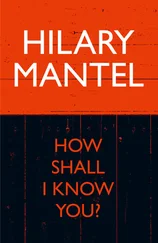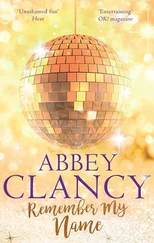“That is the crank,” she said. “Crank makes you smarter. Everybody knows it. Even Einstein did crank,” she said. “Not to mention Jack Kerouac.
“Here, let’s do some more,” she said. “Let’s do as much as we want. I always want to do that and I never do. Let’s actually do it. Let’s smoke a big bunch together and then make love for an hour. We can be like whales. They make love for a week in the water.”
She climbed out from under the comforter.
“Come out here with me,” she said. “The cold air feels good. God, listen to the storm.”
She added more crystal to the pipe. We knelt naked together on the bed with our knees rubbing and smoked.
“My ass is like a whale’s,” she said, and laughed.
“Is that right about Einstein?” I said. “I think you are thinking of Freud. And I think it was cocaine. Or Sherlock Holmes, maybe. He was a big cokehead, too.”
“Was there a real Sherlock Holmes? I don’t like cocaine,” Lisa said. “That is your brother’s drug. For me it’s over too soon.” She laughed again. “That’s funny,” she said.
She laughed too often, especially around sex. That was probably the only thing I did not like about her.
W hen the buy counter was slow or our regular man on the runs — a fellow who called himself the Wizard of Oz — got overbooked, Mr. Popper told Jim to send me out to bat cleanup. I wore a backpack, like a high school kid, full of diamonds, checks, bullion, sometimes cash, Swiss watches, and other precious goods that we ferried back and forth between Fort Worth and Dallas. Much of our business was conducted this way. I kept a pair of blue jeans at the store for when they sent me on the runs because you did not want to attract attention. The regular runs guy, the Wizard, drove a bruised Toyota pickup truck for the same reason. But with all the cars in his collection Popper owned only one that was anonymous, so I usually took Jim’s company Porsche or the big four-door Audi. I enjoyed driving these cars and wished I could wear a suit. That would impress the girls at gas stations when I was filling up the car.
Elie Kizakov was our main memorandum supplier of diamonds ten carats or larger, and most of our fancy stones, especially the rarest fancy colors like red, orange, and green. Jim, Dennis, and Mr. Popper referred to him simply as the Jew. He took a liking to me because the first time we met, at his fifteenth-floor office in the Murray Savings Building on Preston Road in Dallas, where all the serious diamond dealers were — not just the Jews and Israelis but the Indians and South Africans as well — I was reading Spinoza’s Ethics . I always brought a book with me to Murray Savings because they liked to make you wait. Not Mr. Kizakov, though.
“Spinoza. He was a pantheist. You know what a pantheist is?”
I nodded.
“He was the most famous intellectual ever to be excommunicated from our faith,” he said. “Other than Jesus Christ. But then Jesus was not an intellectual. A real mistake the rabbis made. Spinoza, I mean. A great man. But, to be fair, not a religious man. Pantheism, atheism, they are one and the same. What is your name?”
I told him.
“You are not related to Jim Clark?”
I nodded again.
“But you are not selling? Why not?”
I lied and explained that we were short-staffed on the runs.
“Deliveries are not so bad. It is honest work. You perform a useful service. I often tell Idan selling is a dangerous business. Better you should work construction. Do something of use to your fellow man. At least postpone selling for a year or two. Until you see it for what it truly is. This way you avoid selling yourself.”
•
As Kizakov began to trust me he took time with me.
“You want to learn something, Clark? Come here. Look at this.”
He was my favorite stop. Kizakov and another man, an Indian named Namil, whose wife gave me samosas. I hadn’t even known I liked Indian food until I tried those.
“In this business, always trust your eyes,” Mr. Kizakov taught me. “There are always lies in business. That is nothing to complain about. But in some businesses, like this one, you can see what you are buying. There is money in the paper businesses. That is true. My father was in insurance. In Berlin. And Prague. A very successful man, my father. But personally I like to see what I am paying for. I like to show my customer what I am selling him. Now, after he sees everything I can see, it is his responsibility.
“Take a look at this diamond.” He took a diamond from his inside jacket pocket. It was a very unusual place for a wholesaler to secure a diamond. It was not even in a paper. He cleaned it with his shirtsleeve. It was bright pink, and the table of the diamond alone was the size of a quarter, never mind the crown. It must have been twenty carats or more.
“Go on. You have a loupe? No? You carry all these diamonds for Ronnie Popper and you do not even carry a loupe? You going to trust some other man’s loupe for checking in the diamonds? Don’t tell me you don’t loupe them when you sign for them? You put your signature there on that memorandum paper on another man’s word? On a contract? Bist du verwirrt? Crazy? Who do you think they are going to blame when you come back to the office with the wrong diamond? They got your signature. Until they make titles for diamonds, Robert Clark, like they do for automobiles and airplanes, there will always be trickery and deception in this business of ours. In diamonds it is too easy to cheat another man, and the money is very large. So you must rely on your eyes. Here, you keep that one, that loupe. It is my gift to you. Put it on a chain so you don’t forget it. You tell Popper I said to give you a gold chain to wear around your neck and hang it on. He can bill me if he wants to. God knows what the man owes me. Inspect the diamond. Use the loupe. Let me see how you look.”
I opened the teardrop-shaped device so that the lens was extended from its cover. I tried to hold it casually, with my forefinger through the case, like Jim did. Then I took the tweezers from Kizakov and lifted the diamond. I pushed the slide forward and locked the tweezers.
“No. Please. You are hurting me with handling the stone like that. Give me the tweezers. Never use that slide to close them up. You should not even use such tweezers. And keep both eyes open. You never close one eye when using a loupe. What is your brother teaching you?”
I did not remind him that they were his tweezers.
“Let me show you. This is how it is done. You never start from the top of the stone. If you were buying the diamond, already the man you are buying from knows he can cheat you. Start from the bottom. Then the side, the profile, all around the diamond, like this. Then you look through the crown. Finally the table, but there you will learn very little. The diamond is designed to hide everything one might otherwise see. That is the specific virtue of the cutter. That is the function of the diamond. Like a woman’s beauty. To hide its own flaws. Now look again. In the manner I have shown you.”
The diamond was flawless. There was nothing but facets, angles, and light. But then, looking through the pavilion from the bottom, I caught a kind of S-shaped glitter near the center of the stone. I looked for it again from the side, again seeing into the pavilion, and turned the diamond by rotating the tweezers in my fingers as Elie Kizakov had shown me, and I went around twice very slowly before it appeared again, a different shape, but tracing from it was another line that branched off in a kind of X. If you looked for it turning it at an odd angle to the light it flashed illumination at you like a bright red figure for an instant and then vanished. You blinked at it when it appeared. I could only make the diamond do it twice and then somehow it evaded me. There may have been a change in the light of the room, a cloud outside could make that difference, or a shadow interfering, from Kizakov perhaps.
Читать дальше











